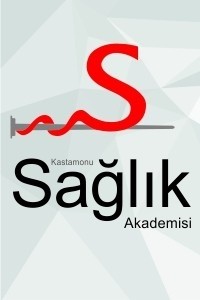Perspectives of family health nurses on their role as health educators
Family Health, Health Education, Nurse's Role
Perspectives of family health nurses on their role as health educators
Family Health, Health Education, Nurse's Role,
___
- Acevedo, M.B., Becerra, F.N.P., Ospina, J.N.T., Paucar, G.E., Córdoba, A. A., & Correa, F.P. (2009). EL diálogo de saberes como posición humana frente al otro: referente ontológico y pedagógico en la educación para la salud. Invest Educ Enferm, Medellin, 27(1),104-111. Recuperado em 15 julho, 2016, de http://www.scielo.org.co/pdf/iee/v27n1/v27n1a11.pdf.
- Bardin, L. (2011). Análise de conteúdo. Lisboa: Edições 70.
- Barroso, G. T., Vieira, N. F. C., & Varela, Z. M. V. (2003). Educação em saúde: no contexto da promoção humana. Fortaleza: edições Demócrito Rocha.
- Besen, C.B., Souza, M., Netto, Ros, M.A., Silva, F.W., Silva, C.G., & Pires, M.F. (2007). A Estratégia Saúde da Família como Objeto de Educação em Saúde. Saúde e Sociedade, 16 (1), 57-68. Recuperado em 20 julho, 2016, de https://www.scielo.br/j/sausoc/a/RjFgLQMfk74GtQ6GCmkqRqK/?format=pdf&lang=pt.
- Borges, C. J. (2005). Avaliação de ações educativas em saúde com grupos de gestantes: estudo comparativo entre Unidade Saúde da Família e Unidade Básica de Saúde. Dissertação de mestrado em Enfermagem, Universidade Federal de Goiás, Goiás, Goiânia, Brasil. Recuperado em 20 julho, 2016, de https://repositorio.bc.ufg.br/tede/handle/tde/734.
- Budó, M. L. D., & Saupe, R. (2004). Conhecimentos populares e educação em saúde na formação do enfermeiro. Rev Bras Enferm, 57 (2), 165-69. Recuperado em 20 julho, 2016, de https://www.scienceopen.com/document?vid=155bcded-3af3-4a87-97a3-4044fe96d376.
- Costa, G. M., Figueredo, R.C., & Ribeiro, M.S. (2013). A importância do enfermeiro junto ao pse nas ações de educação em saúde em uma escola municipal de Gurupi – TO, Revista Científica do ITPAC, 6 (2). 1-12. Recuperado em 15 julho, 2016, de https://assets.unitpac.com.br/arquivos/Revista/62/6.pdf.
- Lopes, E. M., Anjos, S. J. S. B., & Pinheiro, A. K. B. (2009). Tendência das ações de educação em saúde realizadas por enfermeiros no brasil. Rev. enferm. UERJ, 17(1), 273-277. Recuperado em 20 julho, 2016, de https://pesquisa.bvsalud.org/portal/resource/pt/lil-528353.
- Martins, A. K. L., Souza, J.W.R., Vieira, A.F., & Sousa, E.A.T. (2016). Prática de educação em saúde na estratégia saúde da família sob a percepção de enfermeiros. Rev. Saúde.Com, 12(1), 514-520. Recuperado em 23 julho, 2016, de https://periodicos2.uesb.br/index.php/rsc/article/view/398.
- Ministério da Saúde. (2000). Programa Saúde da Família. Brasília, DF, Brasil.
- Oliveira, D. L. (2005). A ‘nova’ saúde pública e a promoção da saúde via educação: entre a tradição e a inovação. Rev Latino-Am Enfermagem, 13(3), 423-431. Recuperado em 21 julho, 2016, de https://www.scielo.br/j/rlae/a/WPsnmqX4hMwLQswcbHvxtkQ/abstract/?lang=pt.
- Pilar, A. C. A, & Andrade, M. (2011). Promoção da saúde: uma reflexão sobre o papel do enfermeiro. Informe-se em promoção da saúde, 7(1), 05-08. Recuperado em 26 julho, 2016, de https://www.uff.br/promocaodasaude/informe
- Portaria n. 2.488, de 21 de outubro de 2011. (2011). Aprova a Política Nacional de Atenção Básica, estabelecendo a revisão de diretrizes e normas para a organização da Atenção Básica, para a Estratégia Saúde da Família (ESF) e o Programa de Agentes Comunitários de Saúde (PACS), Brasília. 2011. Recuperado em 15 julho, 2016, de https://bvsms.saude.gov.br/bvs/saudelegis/gm/2011/prt2488_21_10_2011.html.
- Roecker, S., & Marcom, S. S. (2011a). Educação em saúde. Relatos das vivências de enfermeiros com a Estratégia da Saúde Familiar. Invest Educ Enferm., 29(3), 381-390.
- Roecker, S., & Marcom, S. S. (2011b). Educação em saúde na estratégia saúde da família: o Significado e a práxis dos enfermeiros. Esc Anna Nery (impr.), 15 (4),701-709.
- Santos, F. G. (2010). Educação em Saúde: O papel do enfermeiro como educador. Monografia Curso de Pós - graduação Lato Senso: Docência e Pesquisa para o Ensino na Área da Saúde, Instituto Educacional Severínia, Franca, São Paulo, Brasil. Recuperado em 21 julho, 2016, de https://www.webartigos.com/storage/app/uploads/public/588/508/3b5/5885083b551b7807554760.pdf
- Sousa, L. B., Torres, C. A., Pinheiro, P. N. C., & Pinheiro, A. K. B. (2010). Práticas de educação em saúde no Brasil: a atuação da enfermagem. Rev. enferm. UERJ, 18(1), 55-60. Recuperado em 21 julho, 2016, de https://pesquisa.bvsalud.org/portal/resource/pt/lil-556438.
- Yayın Aralığı: Yılda 3 Sayı
- Başlangıç: 2016
- Yayıncı: Esra DEMİRARSLAN
Conhecimento sobre primeiros socorros de servidores de instituições de ensino infanto- juvenil
Amanda CRİSTİNA OLİVEİRA, Cristina BERGER FADEL, Danielle BORDİN, Midiã VANESSA DOS SANTOS SPEKALSKİ, Everson AUGUSTO KRUM, Melina LOPES LİMA
Periostinin Periodontal Dokular Üzerindeki Etkilerinin Değerlendirilmesi
Doğal Orifislerden Transluminal Endoskopik Cerrahi ve Hemşirelik
Gülnur KUL, Işıl Deniz ALIRAVCI, Şükran GÜLEÇ BARUTÇU, Malik ÇORAKLI
Hemşirelik Öğrencilerinin Sağlıklı Yaşam Becerilerinin Değerlendirilmesi: Betimsel Bir Araştırma
Funda KARAMAN, Aslı GENÇ, Sultan ÇAKMAK, Ayşe Nur YEREBAKAN
Postoperatif Ağrıda Psikolojik İyi Oluş: Bir Korelasyon Çalışması
Esra MAKAL ORĞAN, Sacide YILDIZELİ TOPÇU
Empatik Eğilim, Özgeci Davranış ve Kan Bağışı
Sebahat ATEŞ, Bektaş TOPCU, Aslıhan ÖZPAY, Ayşe YAZICI
Perspectives of family health nurses on their role as health educators
Saiure FARİAS, Ivone NERY, Natalí COSTA, Carla DAMÁSİO, Ramon MİSSİAS MOREİRA
Multimorbidade em idosos brasileiros e a relação com a utilização de serviços de saúde
Danielle BORDİN, Juliana MICHALSKI, Juliana LİGESKİ IUNG BARBOSA, Rodrigo BORDİN, Maria De Lourdes BERNARTT, Melina LOPES LİMA
Covid-19'un neden olduğu duyusal kayıpların yaşam kalitesi üzerine ilişkileri
Camille DE MEDEİROS, Andrea SANCHEZ, Fabiana De Souza FORLANDİ, Mayara Caroline Ribeiro ANTONİO-VİEGAS, Munik De Oliveira MORENO, Victoria FACİN
